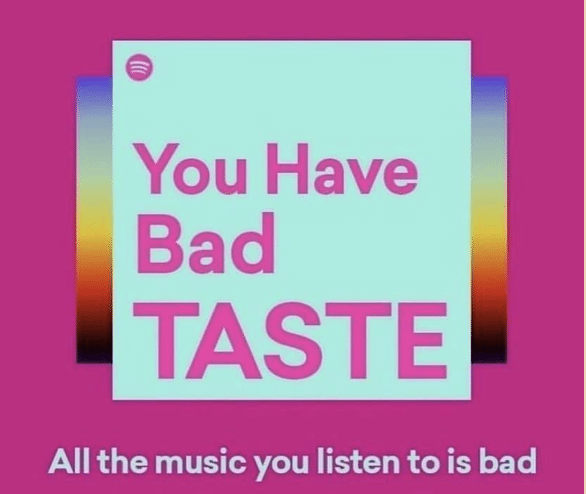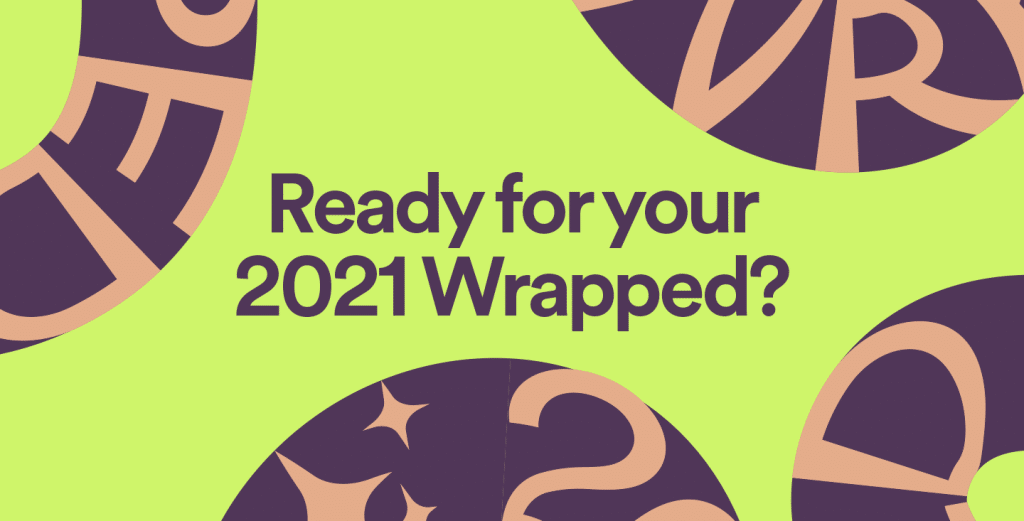Every December 1st, a bomb falls onto the internet, exploding into a cacophony of memes, flexes, and retrospectives of the year that preceded it.
This Armageddon begins with the release of Spotify Wrapped, a yearlong retrospective that the website releases for its users chronicling their listening habits. It’s a cultural event that kicks off the end-of-year season. But isn’t it odd to see such a flagrant celebration of surveillance algorithms?
Everybody is Obsessed with Spotify Wrapped
There’s an inherent appeal to Spotify Wrapped: people really like bragging about their music taste. Taylor Swift fans can show off how dedicated they are to their parasocial goddess with 200 minutes of “All Too Well (Taylor’s Version) on their register. Hipsters can prove that they have a personality by listening to the largest genre variety of their friend group.
People can also find fun in the gentle humiliation that Spotify Wrapped gives them. It’s fun to make fun of oneself for having a musical vibe of “angst and yearning,” or relating to others on an unhealthy obsession with the Undertale soundtrack in 2021.
The format and theme changes every year, relying on different personable gimmicks. For example, this year, everybody got to know what their “musical vibe” was. With a unique but simple spin on the format, an intersection of shame and pride, and a broad enough theme of “music taste” that anyone can get into—it’s easy to see why it has gone viral. In fact, it’s the perfect format for a meme fad.
This year’s Spotify Wrapped memes mainly follow about three different categories of jokes.
- Editing a screenshot from the Wrapped format.

- Making fun of everyone’s hyper-investment with the fad.

- Calling their own music tastes out… Or something like that.
It’s not hard to see and share in the appeal. Not only do people get to indulge in announcing their own tastes to an otherwise ambivalent voice, but they also get to do so in an easily referential way. Not only that, but everyone gets a playlist out of it comprising of their favorite (or most listened to) songs of the previous year. It’s like a yearbook of music, and everyone loves it.
The Algorithm™
But… wait. All of that is well and good, but isn’t it kind of odd how the website intrinsically knows one’s listening habits? Spotify measures user data constantly, with an algorithm built for finding people’s tastes and curating music selections to accommodate them. It’s a convenient and appealing feature of the website, especially as an alternative to traditional radio. People enjoy hearing and learning about new music and artists, but with Spotify, they do so according to their individual preferences.
As convenient as the feature is, “The Algorithm” isn’t unique to Spotify. It’s actually ever-present throughout the internet. Most internet users have likely heard of the ever-elusive “Youtube Algorithm,” which dictates which videos succeed and go viral with little to no consistency.
This video explains a bit about how algorithms work, or rather, how they’re difficult to understand.
Algorithms dictate what people see on each website they go through. They track the activity of users: their interests, what they tend to click on, what they tend to scroll past or skip through, etc. The programs curate people’s feeds and dashboards.
It seems generally harmless and mainly convenient; people would rather see advertisements for things they want, right? Besides, Spotify Discover Weekly usually finds really good, fresh music. But while algorithms sometimes align with user interests on the surface, their main goal has nothing to do with user satisfaction.
Most websites want users to keep scrolling and keep clicking. What they scroll through or click on doesn’t change the money coming out of it, as advertisers rely on the algorithm to keep people seeing their products and clicking on them.
The Twitter algorithm famously shows trending hashtags to users surrounding argumentative or inflammatory topics. Political, “Culture War” topics get more clicks, and backlash is rewarded with virality. Facebook has even accrued criticism for an algorithm that intentionally spreads false information to prioritize profits over their users’ health and safety.
Many of the algorithms’ victims are children , whose interaction with false information and inflammatory topics can damage their mental health.
Twitter’s algorithm actively punishes users for not constantly engaging and tweeting.
As technology improves, so will algorithms, and so will their uses. Most people are uncomfortable with the concept of data mining: it seems dystopian and ignores the privacy of users. While Spotify making custom playlists for its users seems comparatively less problematic than Facebook’s Fake News problem, the hype of annual Wrapped drops shouldn’t go unnoticed.
The exciting prospect of seeing one’s personalized music data makes the idea of being tracked less uncomfortable. Spotify Wrapped not only frames as surveillance ordinary but actively appealing. Even the promotional material for Wrapped considers the event a “cultural campaign.”
As algorithms further entwine themselves with everyday life, it’s beneficial for companies benefiting from their surveillance to keep backlash and skepticism to a minimum.
So, next time Wrapped goes viral, enjoy the memes and the playlists, but take them with a grain of salt.














